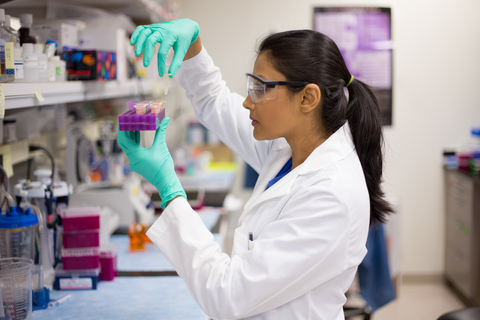£10 hub to tackle global vaccination challenges

The University of Bristol has reported that it will contribute to a new research hub to increase global immunisation coverage and improve response to viral outbreaks through the rapid and cost effective deployment of vaccines.
Established with almost £10m of funding by the Department for Health, the new Future Vaccine Manufacturing Hub is led by Imperial College London and features four other UK universities and three UK institutes.
Managed by the Engineering and Physical Sciences Research Council (EPSRC), the hub will address how to design a production system that can produce tens of thousands of new doses within weeks of a new threat being identified, and how to improve current manufacturing processes and change the way vaccines are manufactured, stabilised and stored so that existing and new diseases can be prevented effectively, and costs reduced.
The hub will collaborate with the Developing Countries Vaccine Manufacturing Network on manufacturing projects in India, Vietnam, Bangladesh, Uganda and China.
Currently, nearly one in five infants across the world, 19.5 million children, do not have access to basic vaccines, and almost one third of deaths among children under five could be prevented through the use of vaccines. The effective distribution of vaccines is hampered in rural areas of low and middle income nations by the costs associated with their production and purification, and the need for them to be stored at temperatures of between two and eight degrees celsius. An additional challenge is the need to respond rapidly to emerging threats such as the Ebola and Zika viruses.
The new hub will adopt an integrated approach that will build on new developments in life sciences, immunology and process systems to address these two challenges. Approaches that will be explored by researchers at the hub include the development of synthetic RNA vaccines which can be rapidly manufactured, the rapid production of yeast and bacterially-expressed particles that mimic components of pathogenic viruses and bacteria, and protein stabilisation to preserve vaccines at temperatures of up to one hundred degrees celsius, avoiding the need for refrigerated distribution and storage.
University of Bristol lead, Professor Imre Berger, Director of the Bristol Synthetic Biology Centre BrisSynBio, said “Synthetic biology is emerging as a game-changer in many fields, notably in life sciences and the health sector. BrisSynBio will bring to bear its array of highly sophisticated tools to address urgent, unmet needs in the field of vaccine research.”
EPSRC’s Chief Executive, Professor Philip Nelson, said “Vaccines and their availability can mean the difference between life and death for millions of people across the globe. Many of these deaths, whether they are a result of polio, diphtheria or measles, could be prevented through immunisation, and research at the Hub will look to overcome barriers currently blocking progress in this field. At the same time, this investment will also support the researchers as they strive to develop ways to respond rapidly and efficiently to threats such as Ebola and Zika and save many lives in the future.”








